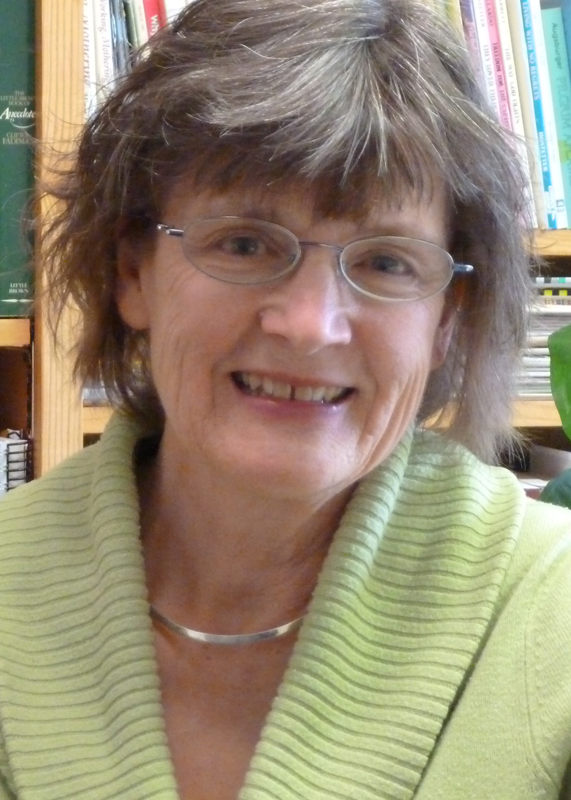Is Your Faith Wild?
This season of the year always brings to mind one of the most frightful Halloween nights my children ever experienced.
I have to confess that the idea of a “wild” or “untamed God” is a little unnerving.
We traveled to New York City so I could attend a conference for syndicated columnists, and my husband gamely went along to take our children to see the sights, even though the two oldest were only ages five and a half and three and a half. (Since our youngest was only 9 months old, we left her with a wonderful couple from our church.) It was Halloween weekend and the New York City marathon was being held on Sunday, just like it will be this year, so the city was filled with people looking for a good time.
On late Saturday afternoon my conference finished, so we headed to the Statue of Liberty and climbed to the crown of the famous statue (advance reservations now required). The 3-year-old trudged up all 354 steps without complaining, much to the amazement of those in line behind us.
As we headed back to Lower Manhattan and got off the ferry, darkness had descended, and with it ghosts and goblins came out—dressed up for a grand Halloween parade through Greenwich Village. Spooks were roving around Battery Park and trying out their wild and scary looks.
My 3-year-old, who must have been exhausted by that time, was terribly frightened by someone heading toward her with a fierce mask who said simply, “Boo!” She screamed, and I jumped too, but we quickly comforted her and assured her it was just Halloween.
I thought of this in reflecting on an exciting—but a little scary—book that came out in September: Rewilding the Way: Break Free to Follow an Untamed God, by wilderness expert Todd Wynward (Herald Press).
I have to confess that the idea of a “wild” or “untamed” God is a little unnerving.
When I think of God, I think of phrases like “God is love”; “God is like a parent”; “God is faithful”; “God is good.” In what ways is God also untamed, and why is that worth pondering? I don’t think of God as a wild lion or rhino or black bear or ghost or otherworldly creature!
But Wynward borrows from biology and ecology, where large masses of land have been “rewilded” in wildlife corridors: returning to a more natural state in the interest of maintaining or increasing biodiversity. Creatures therefore enjoy less-inhabited land and have a way to get around without crossing busy highways. Wynward also looks to the Bible to present a penetrating thought: how about letting go of a Christianity that has become, at least in Wynward analysis, too tame and too domesticated? Think back to Jesus in the wilderness. John the Baptist in the wilderness. The children of Israel sojourning with Moses in the wilderness for 40 years. The wild and unusual prophets in the Old Testament calling for a more authentic faith.
Wynward says he offers “an unapologetic rallying cry to rewild a Christianity that has become terribly tame. Can today’s cozy Christians become the countercultural prophets God aches for us to be?”
Jesus as subversive? Well, yes. Although he was immensely popular for a while, he angered government and religious leaders and upset the status quo. He was eventually killed in the most hideous way.
Wynward wants Christians to think of themselves as part of what Jesus was about in the world:
We’re the people God’s been waiting for. If this sentiment seems heretical to you, I understand. Like me, perhaps you’ve been raised to believe in Christendom, a kind of institutional religion initiated by the Roman emperor Constantine that replaces the liberating Way of Jesus with a way that encourages its own accumulation of wealth, control, military might, and political power. (Rewilding the Way, p. 22). Under this model, humans aren’t supposed to do much but worship and obey, avoiding sin as best they can. One of the greatest tragedies of Christendom over the centuries is that it has domesticated our God-given human potential. No matter what you’ve been taught, know this: God has always desired for us to be conspirators in God’s dream, collaborators in redemption. (Rewilding the Way, p. 22.)
For example, a corrupted Christianity might suggest that a TV evangelist buying a corporate jet to save precious time traveling for speaking engagements is prudent. A corrupted Christianity might also suggest that building an even bigger house to make the extended family more comfortable when visiting is okay. Not to judge anyone, but this last one gets too close to my own reality.
The thing I really like about Todd’s book—and I’ve met him, a down-to-earth and modest guy—is that he is honest and vulnerable in recognizing and naming his own ways where he doesn’t practice what he preaches. We are all guilty of rationalizing our choices in our attempt to faithfully follow God.
So be it. If you want a book that will challenge your way of thinking about God, Jesus, and faith, check it out or even study it in your small group or Sunday school class. It’s an invitation to faithfully live on the wild side. Not in a way that is truly scary, but perhaps risky, more authentic, more dedicated. This is not a bad way to approach the upcoming holiday season and end-of-year reflections, either.
Prepare to be dared.
We’ll send you a free bookmark for this potentially life-changing book. Write to Another Way, 1251 Virginia Avenue, Harrisonburg, VA 22802 or to MelodieD@MennoMedia.org.




